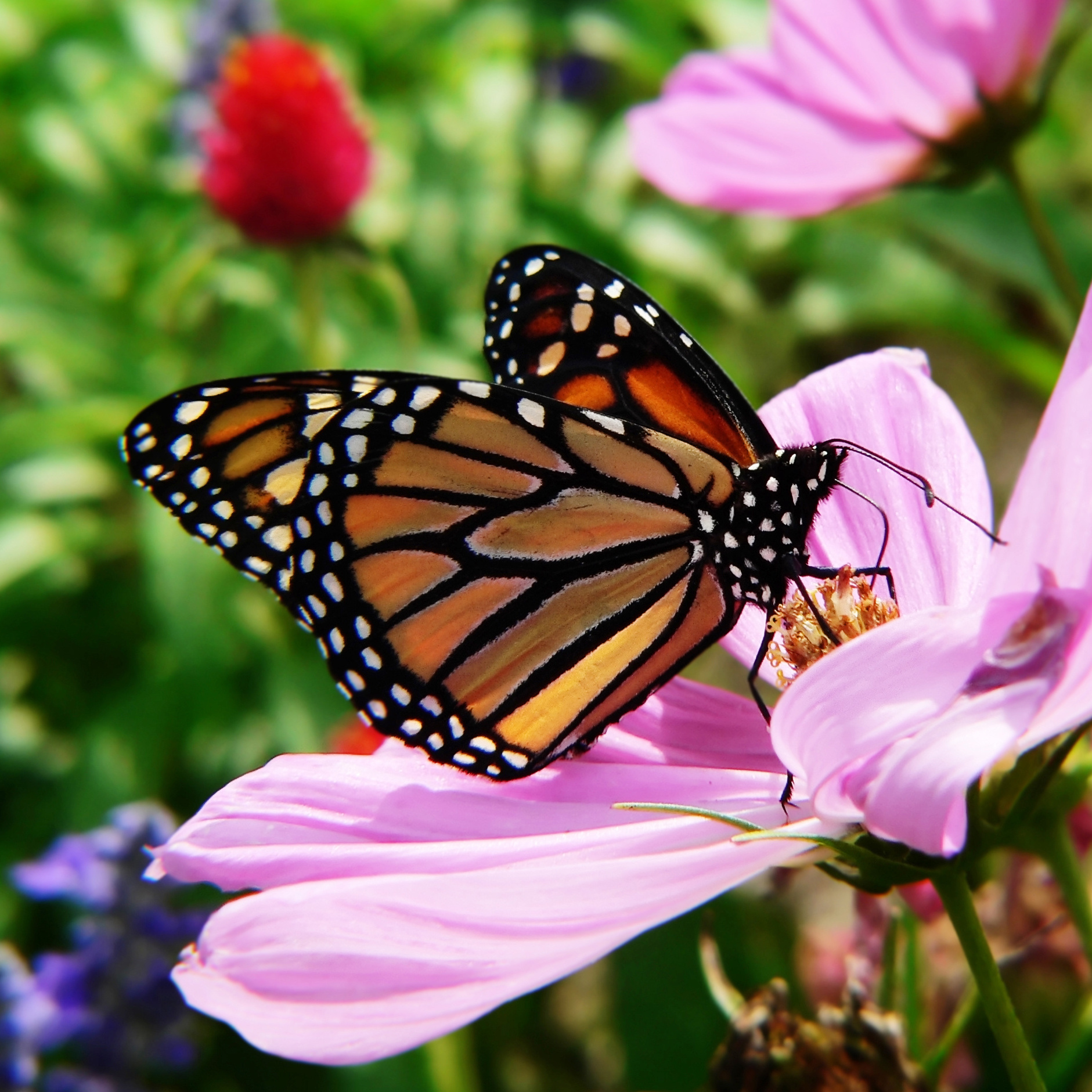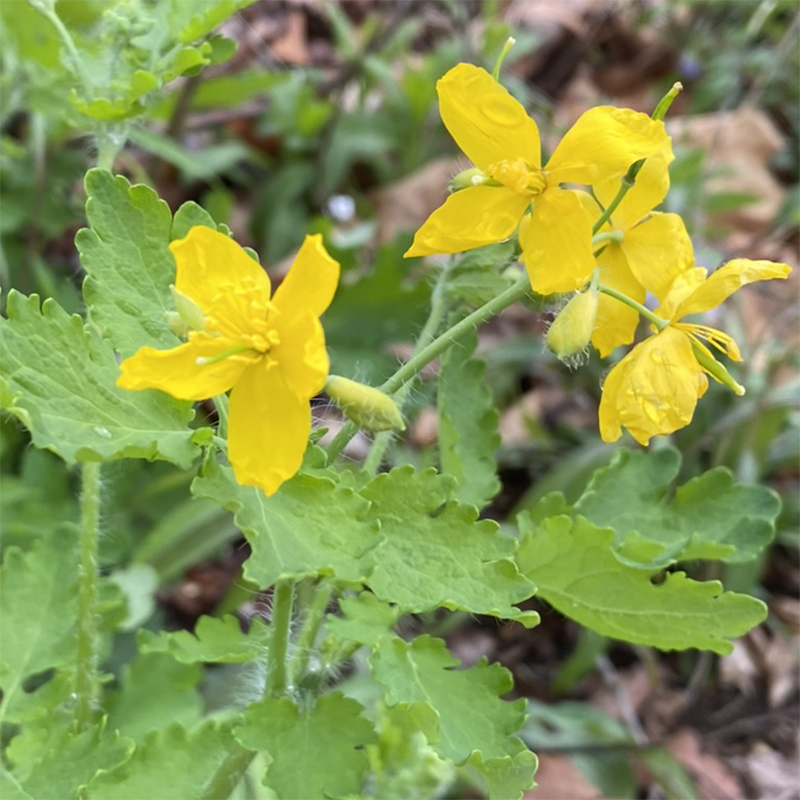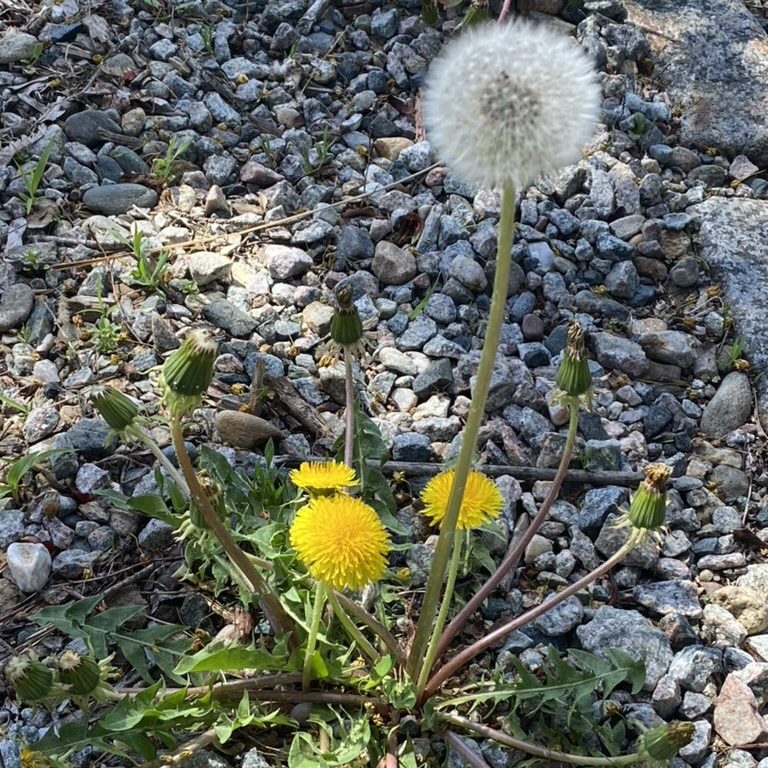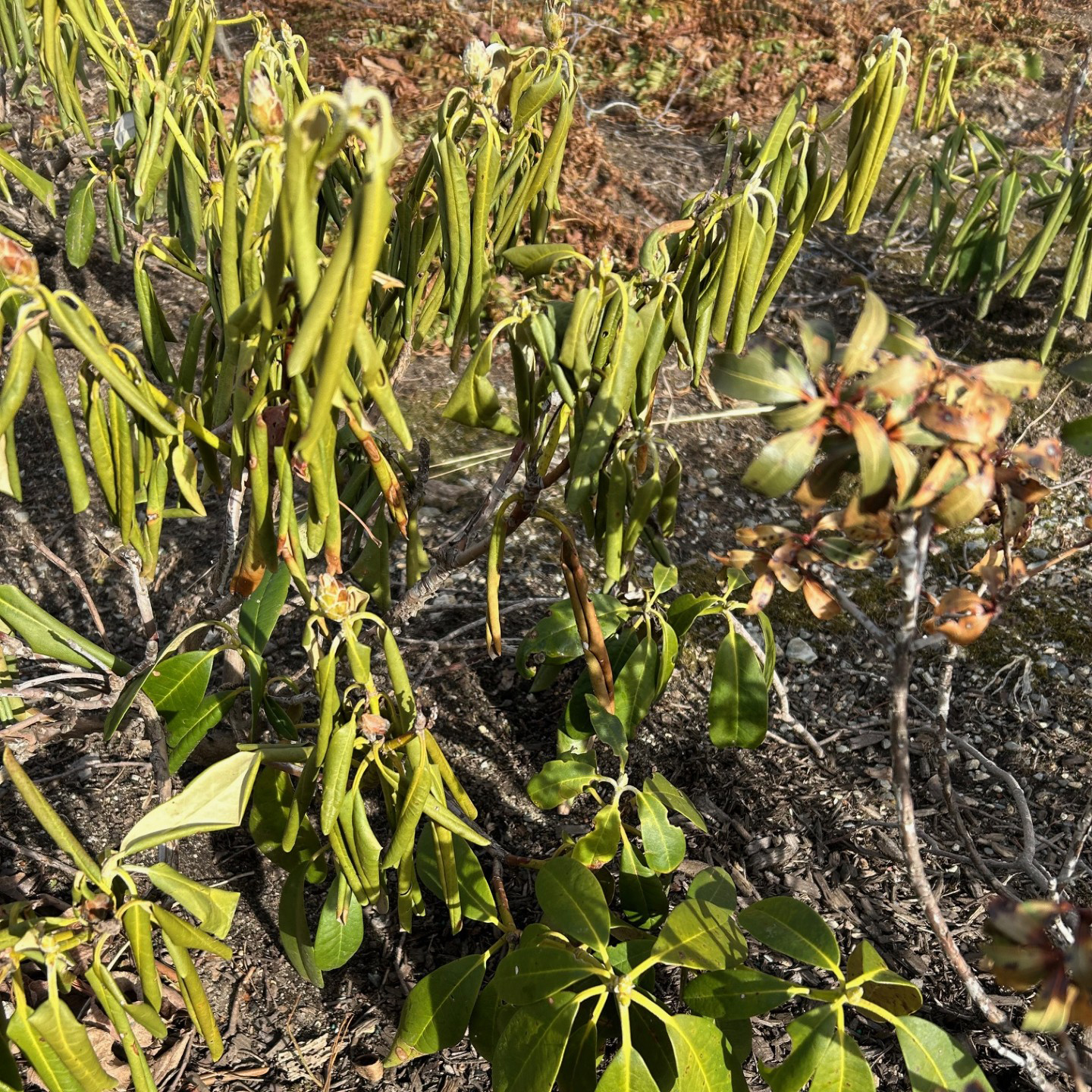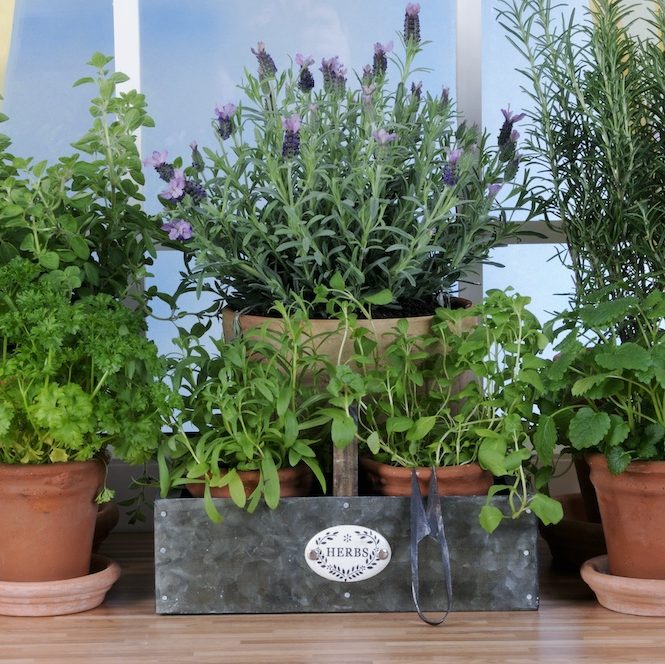
In the dead of winter not only is it uplifting to have some living greenery in our homes but for the chefs amongst us, keeping a few pots of fresh herbs is doubly rewarding.
So for those that wish to do their own “farm to table”, so to speak, here are some tips for growing herbs indoors.
Herbs need bright light in order to do well. Aim to place them in your sunniest window, or use a grow light to give them the equivalent of at least six hours of sunlight.
Humidity is another factor to consider, as the air indoors often becomes very dry in winter. While rosemary and thyme won’t mind, most other herbs would appreciate having the ambient humidity increased during spells of very cold weather. Try placing them on trays of pebbles, or lightly mist if the air is very dry. Kitchens and bright bathrooms are good locations, as the humidity naturally tends to be higher in these rooms.
Herbs are happy with daytime temperatures between 65-70°F and 55-60°F at night. Try to avoid placing them where they will experience cold drafts, or blasts of warm air from heating vents.
Grow them in pots with drainage holes – constantly wet soil will cause plants to rot and die. By all means use decorative cache pots, but just check on the pot fifteen minutes after watering and empty out any remaining water.
While herbs look attractive planted together in larger pots, save that for outdoors. During the winter months indoors herbs do better in individual pots, which gives better air circulation. Rosemary in particular requires this if it is not to develop powdery mildew.
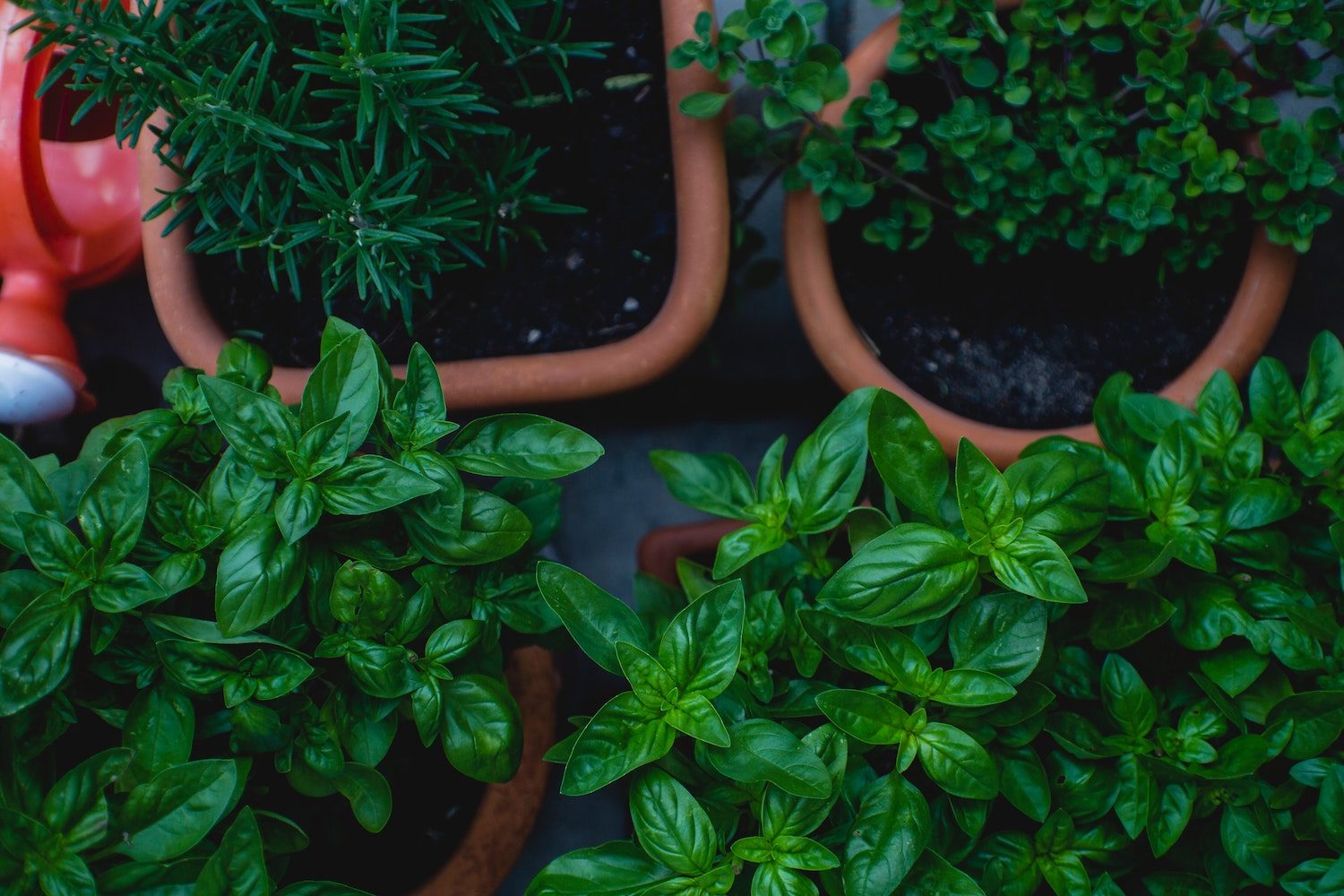
Harvest no more than a quarter of your plant at any one time. This will allow you to crop over several weeks. This is particularly applicable to herbs that are perennials, such as rosemary, thyme and oregano. Other herbs such as basil, cilantro and parsley are annuals, and therefore it is ultimately best to plan to have a succession of plants, either by buying new plants regularly, or by planting seeds at bi-weekly intervals.
Come the spring herbs can be planted outside, and the perennial ones will appreciate the benefit of being outdoors. But while the weather work against us, pots of fragrant herbs on our windowsills or kitchen counters is a great way to bring a bit of summer indoors!


